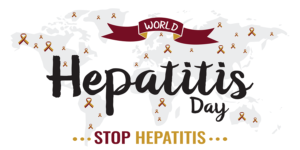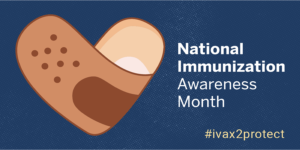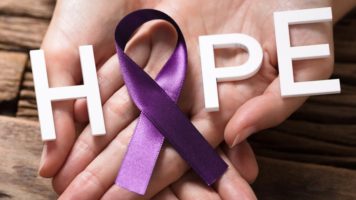Industry News
Life Sciences Support Global Public Health Initiatives
July 2019

World Hepatitis Day Brings Global Focus on Prevention, Education and Treatments
World Hepatitis Day takes place every year on July 28 to help raise awareness of viral hepatitis and highlight the need for a greater global response.
Hepatitis is the term used to describe inflammation of the liver. There are several different types of hepatitis, A, B, C, D, E, alcoholic and autoimmune, and while some occur without any serious problems, others can be long-lasting and cause cirrhosis, loss of liver function and sometimes liver cancer.
The World Health Organization reports that viral hepatitis B and C affect 325 million people worldwide, causing 1.4 million deaths a year. It is the second major killer infectious disease after tuberculosis, and nine times more people are infected with hepatitis than HIV. It is the leading cause of liver disease, liver cancer, and liver transplants. However, over 80 percent of people living with hepatitis lack prevention, testing and treatment services.
In California, according to a 2018 report of the California Viral Hepatitis Coordinating Committee and the California Department of Public Health:
- About 360,000 Californians live with hepatitis B and over 400,000 people live with hepatitis C.
- More than 30,000 hepatitis B or C patients in California were hospitalized in 2010 for liver disease, liver cancer, or liver transplant-related treatments costing more than $2.3 billion.
- About two-thirds of people with hepatitis B and over half of those with hepatitis C are unaware of their infection.
- Without early diagnosis and treatment, one-quarter of people with hepatitis B will die from liver disease.
Hepatitis is preventable, treatable, and in the case of hepatitis C, curable. Treatments include vaccinations, traditional and DNA-based anti-viral treatments and in some cases, transplant surgery. Visit the Centers for Disease Control for more information about hepatitis and World Hepatitis Day.

National Immunization Awareness Month Promotes Lifesaving Benefits of Vaccines
You only need to watch the news to see stories about how vaccine preventable diseases are causing serious illnesses and avoidable deaths.
August marks National Immunization Awareness Month (NIAM), a national effort to promote vaccinations and protect children and adults from serious, and sometimes deadly, preventable diseases.
According to the Centers for Disease Control and Prevention (CDC), immunizations are one of the top 10 public health accomplishments of the 20th century. Among children born between 1994-2013, vaccination will prevent an estimated 322 million illnesses, 21 million hospitalizations and 732,000 deaths throughout their lifetimes.
Biotechnology companies worldwide are on the forefront of discovering and providing safe vaccines for some of the deadliest conditions including cancer, HIV/AIDS, anthrax, and tuberculosis or infectious diseases like measles, whooping cough, polio and bacterial meningitis that once routinely harmed or killed children and adults. And dozens of additional immunization treatments are currently in the pipeline.
Vaccines are not only safe, cost-effective and lifesaving, but they also promote overall public health and safety. Immunization helps keep communities healthy, including those most vulnerable to vaccine-preventable diseases. When a community is fully immunized, infectious diseases have less chance to spread and infect people who cannot get vaccinated because of age or a specific health condition where immunizations aren’t an option.
For more information about immunizations and National Immunization Awareness Month visit the CDC. To learn more about recommended vaccines for babies, children and pregnant women, visit the Interactive Vaccine Guide. Or, use CDC’s adult vaccine assessment tool to see which vaccines might be suggested for adults.
Stay informed on the latest news and trends on the economic and health benefits of this important industry by visiting the new CABiotech.org
For more information about California’s biotechnology and life science industry, contact California Biotechnology Foundation Executive Director Patty Cooper at (916)764-2434 or [email protected].


